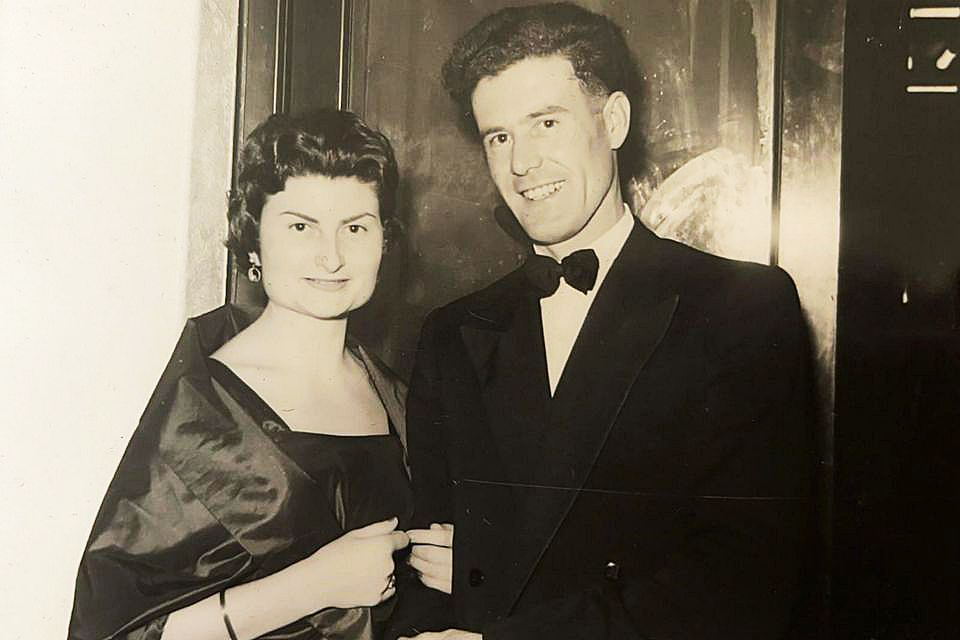WHEN Colm McCusker died last week, a piece of Ireland died with him. He was 91 years old and lived a life that will never be seen again.
His first job was as a gardener in Upperlands with Clarkes, the big house protestants. Later, he became a weaver working in their linen mill. He saw and felt the injustice and discrimination all around him, so when the IRA mounted their campaign in the 50s, Colm was a conscientious consenter. In 1958, armed with a Thompson submachine gun, he took part in an assault on the Swatragh Royal Ulster Constabulary station. In the shoot out, he was struck in the chin with a bullet, but unlike Donald Trump he didn’t make a meal of it. In the course of his escape, he crashed through a checkpoint manned by the notorious B specials, then crashed trying to smash through a second and was arrested in the driver’s seat.
The possible bullet wound on his chin was not deemed to be sufficient evidence to charge or prosecute him. But in the Northern Ireland of those days, evidence was not an essential requirement. Instead, he was simply taken to Crumlin Road gaol and detained without charge for the next three years, which Colm took in his stride. The only thing that really bothered him was missing the famous 1958 All-Ireland semi-final where Derry beat the mighty Kerry, and then the final, where we narrowly lost to Kevin Heffernan’s Dublin.
When he was released, he married Peggy, they moved to Maghera and just a fortnight ago, they celebrated their 60th wedding anniversary. In the meantime, his sons Damien and Fergal became celebrated footballers, playing central roles in Derry’s 1993 All-Ireland triumph.
Colm played in the middle of the field with Tirgarvil Robert Emmet’s on the impoverished side of Glenshane, but when they later folded due to lack of families, the players moved to the newly formed Sleacht Néill Robert Emmet’s. “Not only did they steal our players,” said Colm,” the buggers stole our name as well.” After the Crumlin Road, he became the local bread man. When Father Paddy said at his requiem mass on friday, “sometimes he delivered other items as well,” there was great mirth in the chapel.
In the 60s, he became a prominent civil rights campaigner. Later, he joined with Oliver Kearney and along with Oliver, Betty Noone and others, he was instrumental in the introduction of the Employment Equality Laws in the North, which were transformative in banishing religious bigotry and discrimination from the work place here.
He retired from the bread run when he was 65 and decided he would like to try the construction game. So, the following week, he started work as a site labourer and for the next 10 years, he headed off every morning in the work van with his Rover tin and flask.
When he was 75, like Forrest Gump coming to the end of his marathon run across America, he suddenly decided he had had enough of mortar and shovels. His next project was to learn Irish. So, he headed over the hill to the Watty Graham’s mortal enemies in Sleacht Néill and immersed himself in the Irish classes at An Carn. After that, he only spoke As Gaeilige in the house, or rather, he started with the Irish when a guest came in, and only resorted to the English if they couldn’t understand. “An Ghaeilge ar dtús teanga na ngall sa dara áit.”
Through my friendship with Fergal, I became part of the furniture in their home. When Brian Mullins’ training became too long and too grinding for me, I would baulk as we got closer to Owenbeg and get the lads to drop me at McCuskers on the way. Peggy would make a delicious dinner, I would chat with Colm and Peggy about the great events of the day, then I would snoose on their sofa until the boys were finished training and came back for me. “He’s at the physio,” Fergal told big Brian.
In due course, Colm’s sons followed him, immersing themselves in their community. The boys take the underage Watty Graham’s teams and help out wherever help is needed. At the Watty’s minor training a fortnight ago, Colm’s son Damien climbed up the ball stop to extricate a ball from the wire. He got his wedding ring caught in the fencing and slipped, ripping off his finger. When he went to lift the coffin after requiem mass, his brother Fergal said, ‘Watch your fingers our boy.”
This was only the start. The brothers spent the day asking him to “Give me five our boy.”
Sitting in Kearney’s Bar in the main street afterwards, James said with a straight face (he has a very good straight face) he had bought Damien piano lessons for his birthday and wanted to know if anyone else could use them. If Colm had been there he would have raised his eyebrow and given them the look. He never raised a hand to them or a voice. As Damien says, “That look was enough.”
After the funeral mass, the Watty Graham’s clubhouse was packed, the ladies making and serving the food, the kids playing up and down the gleaming hall, All-Ireland club winners mixing with octogenarians and babies.
I drank tea with Peggy, who is as beautiful as the day she was married and thought to myself that life does not get any better.
Receive quality journalism wherever you are, on any device. Keep up to date from the comfort of your own home with a digital subscription.
Any time | Any place | Anywhere













